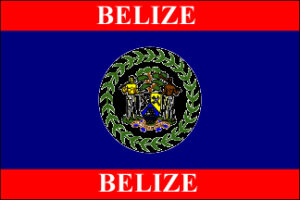 Belize views education as a basic human right. The Ministry of Education in Belize is committed to improving the state of education in the country by following the goals set forth in the Education For All Fast Track Initiative such as ensuring that all children “have access to and complete, free, and compulsory primary education of good quality” by 2015. The Ministry of Education has demonstrated this commitment by creating detailed strategies for how it will reach these goals and by backing it up by spending 25% of its national budget on education, more than countries such as Cuba, Costa Rica, and Barbados.
Belize views education as a basic human right. The Ministry of Education in Belize is committed to improving the state of education in the country by following the goals set forth in the Education For All Fast Track Initiative such as ensuring that all children “have access to and complete, free, and compulsory primary education of good quality” by 2015. The Ministry of Education has demonstrated this commitment by creating detailed strategies for how it will reach these goals and by backing it up by spending 25% of its national budget on education, more than countries such as Cuba, Costa Rica, and Barbados.
All children between the ages of 5 and 14 are required to attend 8 years of primary school according to the Education Act of 1990, later amended in 2000. Like many other countries however, while primary education tuition is free, the related costs of books and uniforms discourage many students from completing primary education. Secondary school has both four-year programs and shorter programs that offer vocational or trade courses.
The Caribbean Examinations Council administers the Caribbean Secondary Education Certificate (CSEC) for secondary students in the Caribbean region to determine if students have completed their secondary studies. The overall grade reflects the student’s performance on the unit as a whole while the profile grade reflects the performance on each module of the unit. The scoring for this examination is as follows:
|
Overall Grades |
Profile Grades |
Description |
|---|---|---|
|
I |
A |
Candidate shows a comprehensive grasp of the key concepts, knowledge, skills and competencies required by the syllabus. |
|
II |
B |
Candidate shows a good grasp of the key concepts, knowledge, skills and competencies required by the syllabus. |
|
III |
C |
Candidate shows a fairly good grasp of the key concepts, knowledge, skills and abilities required by the syllabus. |
|
IV |
D |
Candidate shows a moderate grasp of the key concepts, knowledge, skills and competencies required by the syllabus. |
|
V |
E |
Candidate shows a very limited grasp of the key concepts, knowledge, skills and competencies required by the syllabus. |
|
VI |
F |
Candidate shows a very limited grasp of the key concepts, knowledge, skills and competencies required by the syllabus. |
For postsecondary institutions, the general grading scale is as follows (at some institutions, a “D” is considered failing):
|
Letter Grade |
Description |
|---|---|
|
A |
Excellent |
|
B+ |
Very Good |
|
B |
Good |
|
B- |
Good |
|
C+ |
Very Satisfactory/Above Average |
|
C |
Satisfactory |
|
C- |
Satisfactory/Minimal Pass |
|
D |
Pass |
|
F |
Failure |
The Ministry of Education in Belize controls the primary school curriculum; however the secondary school curriculum is determined by the stream students follow. The primary school curriculum focuses on English, Spanish, mathematics, science, work and technology, social studies and personal development, art, physical education, and health. There are three main streams in secondary education: business, secretarial, and academic studies. While the first two years of secondary study usually focus on similar subjects to those in the primary school curriculum, the subjects that are studied the last two years vary based on the stream the student chooses.
Tertiary education is organized into sixth-forms or junior colleges that offer two-year degrees, professional training institutions, and the University of Belize. Many junior colleges evolved from high schools and therefore most of them share a campus and administration with the high schools. Though the National Accreditation Council Act was passed in Belize in 2004, the council has not been established and there is currently no governing body for quality assurance in tertiary education.
Credentials in Belize are earned following the completion of secondary school and the completion of postsecondary school programs. Following secondary school, students interested in pursuing further education sit for the CSEC and students who get above a III are considered to have passed. With the CSEC, students can attend postsecondary institutions to pursue degrees such as a two-year Associate’s degree at Junior Colleges or a four-year Bachelor’s degree.
© 2025 Gaetranslations | Terms & Conditions
Website by: Timefortheweb